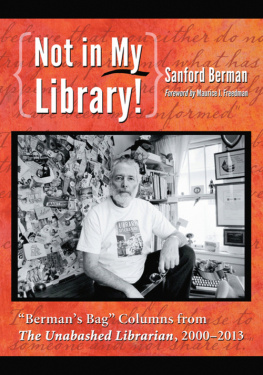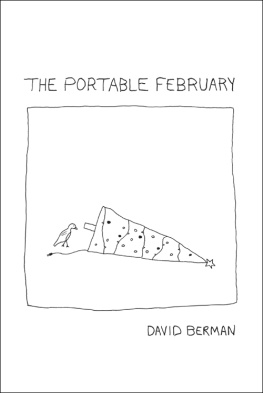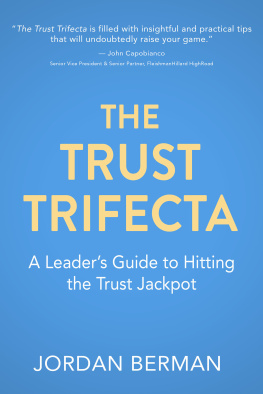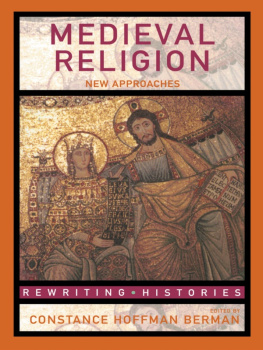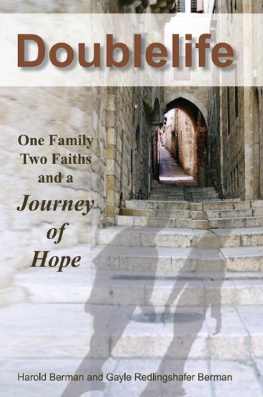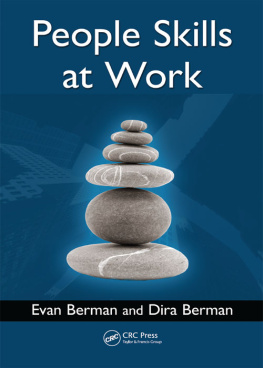Kim S. Berman - Finding Voice
Here you can read online Kim S. Berman - Finding Voice full text of the book (entire story) in english for free. Download pdf and epub, get meaning, cover and reviews about this ebook. year: 2018, publisher: University of Michigan Press, genre: Politics. Description of the work, (preface) as well as reviews are available. Best literature library LitArk.com created for fans of good reading and offers a wide selection of genres:
Romance novel
Science fiction
Adventure
Detective
Science
History
Home and family
Prose
Art
Politics
Computer
Non-fiction
Religion
Business
Children
Humor
Choose a favorite category and find really read worthwhile books. Enjoy immersion in the world of imagination, feel the emotions of the characters or learn something new for yourself, make an fascinating discovery.
- Book:Finding Voice
- Author:
- Publisher:University of Michigan Press
- Genre:
- Year:2018
- Rating:4 / 5
- Favourites:Add to favourites
- Your mark:
- 80
- 1
- 2
- 3
- 4
- 5
Finding Voice: summary, description and annotation
We offer to read an annotation, description, summary or preface (depends on what the author of the book "Finding Voice" wrote himself). If you haven't found the necessary information about the book — write in the comments, we will try to find it.
Finding Voice — read online for free the complete book (whole text) full work
Below is the text of the book, divided by pages. System saving the place of the last page read, allows you to conveniently read the book "Finding Voice" online for free, without having to search again every time where you left off. Put a bookmark, and you can go to the page where you finished reading at any time.
Font size:
Interval:
Bookmark:
 Page i
Page i 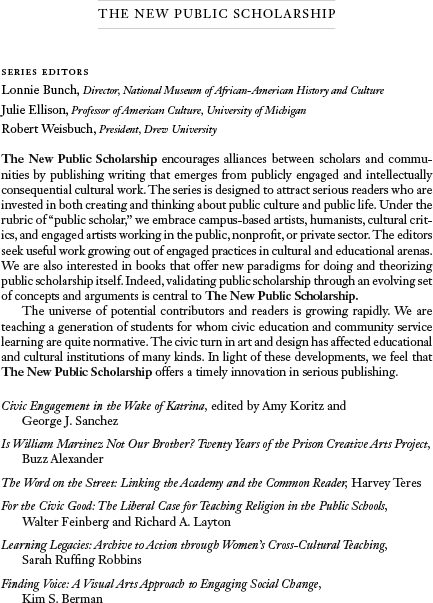 Page ii Page iii
Page ii Page iii A Visual Arts Approach to Engaging Social Change
Kim S. Berman
University of Michigan Press
Ann Arbor
Page iv Copyright 2017 by Kim S. Berman
Some rights reserved

This work is licensed under the Creative Commons Attribution-Noncommercial-No Derivative Works 3.0 United States License. To view a copy of this license, visit http://creativecommons.org/licenses/by-nc-nd/3.0/ or send a letter to Creative Commons, 171 Second Street, Suite 300, San Francisco, California, 94105, USA.
Published in the United States of America by the
University of Michigan Press
Manufactured in the United States of America
A CIP catalog record for this book is available from the British Library.
Library of Congress Cataloging-in-Publication Data
Names: Berman, Kim, author.
Title: Finding voice : a visual arts approach to engaging social change / Kim Shelley Berman.
Description: Ann Arbor : University of Michigan Press, 2017. | Series: New public scholarship | Includes bibliographical references and index.
Identifiers: LCCN 2017030458| ISBN 9780472053667 (paperback) | ISBN 9780472073665 (hardcover) | ISBN 9780472123315 (e-book)
Subjects: LCSH: Art and society. | Art and social action. | Art and societySouth Africa. | Art and social actionSouth Africa. | BISAC: SOCIAL SCIENCE / Black Studies (Global). | HISTORY / Africa / South / Republic of South Africa. | ART / Study & Teaching. | SOCIAL SCIENCE / Gender Studies.
Classification: LCC N72.S6 B475 2017 | DDC 701/.03dc23
LC record available at https://lccn.loc.gov/2017030458
http://dx.doi.org/10.3998/mpub.9256315
Cover illustration: Making a Paper Prayer print at Artist Proof Studio. Photo by Debbie Rasiel, 2013.
Page v For my life partner, Robyn van der Riet, and to my mom, Mona Berman, and my sisters, Lori, Cindy, and Hayley, who are a continual inspiration
Page vi Page viiThanks go to all the friends, colleagues, and collaborators who have enriched my life and made the publication of this book possible. It has been an enlightening journey filled with remarkable individuals and communities.
I am grateful for the guidance and wisdom of my doctoral advisors, Lara Allen and Pamela Allara.
For their patience and resilience as readers and editors, I am indebted and thankful to Marcia Leveson, Robyn Sassen, Pamela Allara, and Mona Berman.
I am grateful to the series editor, Julie Ellison, for her belief in me and for directing me to the University of Michigan Press.
I thank the Presss editorial director, Mary Francis, editorial assistant Jenny Geyer, and Kevin Rennells for their support and guidance, as well as the insightful anonymous readers and reviewers of my manuscript.
I am grateful for the continual support of my colleagues in the Visual Art Department at the University of Johannesburg and at Artist Proof Studio.
I thank the institutions and funding organizations who have supported this research, my students, and community engagement projects: the University of Johannesburg, the Faculty of Art Design and Architecture, the National Research Foundation, the South African Department of Arts and Culture, the South African Development Fund, UNESCO, the Ford Foundation, and the many donors and partners that have supported Artist Proof Studio, Paper Prayers, Phumani Paper, and community engagement at UJ.
Professor Michelle LeBaron generously invited me to be part of a group of visiting scholars on arts and social change at the Peter Wall Institute for Advanced Studies at the University of British Columbia in Vancouver and the Stellenbosch Institute for Advanced Study at Stellenbosch University.
Susan Sellschop, a friend, mentor, and collaborator who has accompanied Page x me on the journey as a trainer and inspiration to so many South African crafters in South Africa, sadly passed away on February 16, 2017, before the release of this book. She will be missed by us all.
The journey represented by this book is a result of many collaborations with family, friends, colleagues, and students in South Africa and the United States. My deep gratitude goes to all the individuals in this book who so generously consented to share their stories that continue to change lives.
Page 1The basis of this inquiry is how the visual arts contribute to positive social change. Finding Voice represents the notion that the visual arts are an expression of the aspirations of people in their hope for a more just and democratic society. It emphasizes the power and potential of collective voice in the visual portrayal of historical injustice and the envisioning of a new paradigm in which to move forward. This book, then, values the notion of voice as key to agency and the responsibility to act.
The specific focus of this book, in post-apartheid South Africa, necessitates a multidisciplinary approach straddling the fields of arts education and developmental studies and requires examination of the sociological, political, historical, and cultural aspects of society. As there is no comfortable disciplinary home for such an investigation, this book crosses disciplinary boundaries, drawing on diverse concepts and understandings in order to enable the creation of a space that is able to explore, invent, imagine, or reject certain traditional notions. These concepts are akin to the practice of art-making, in that they can question the givens and imagine new possibilities. In this way, art, or visual voice, can be a pathway to navigate transformative ways of becoming.
The following questions animate my inquiry:
1.How can creative strategies respond to imperatives for democratic change?
2.How can collectives organized around creative activity effectively respond to social trauma?
Page 2 3.To what extent do current government institutions impede or facilitate art and culture in fulfilling potentially transformative social roles?
Answering these questions involves innovations in design, methodology, implementation, and evaluation. Finding Voice values co-creation, community participation, and citizen action. In this exploration, I feature the visual arts as a mode of knowledge that requires keeping ourselves reflexively open to diversity and to the unexpected, in order to discern those elements that do not fit into our theories or dominant codes. This book proposes a primary role for activists who move beyond traditional theories of social justice to advocate new frameworks that are responsive to current social and political needs, through learning from the history of social activism through the arts and then building on those approaches. As activists and facilitators, we explore contexts or conditions that facilitate the emergence and maintenance of new possibilities of meaning and action. Voices and stories from the field provide a bottom-up approach to unlocking some of those theories and contribute to making a compelling case for the role of visual arts in creating social change.
To create a climate for creativity and innovation, it is necessary to develop an approach to creating social change that acknowledges conventional approaches but is unafraid to displace them when their limitations hinder the creation of a climate for creativity and innovation. While many scholars, intellectuals, and activists have reframed knowledge and pedagogical innovation away from the Cartesian model of the certainty of scientific knowing, too many institutions still cling to traditional pedagogical styles and institutional structures. Not infrequently, these structures cause resistance to new technologies and to community engagement, discouraging broader access to changed ideologies of learning. South African scholars can play an important leadership role in showing how innovative approaches can foster a fertile environment for redress and agency for previously disadvantaged students.
Font size:
Interval:
Bookmark:
Similar books «Finding Voice»
Look at similar books to Finding Voice. We have selected literature similar in name and meaning in the hope of providing readers with more options to find new, interesting, not yet read works.
Discussion, reviews of the book Finding Voice and just readers' own opinions. Leave your comments, write what you think about the work, its meaning or the main characters. Specify what exactly you liked and what you didn't like, and why you think so.




